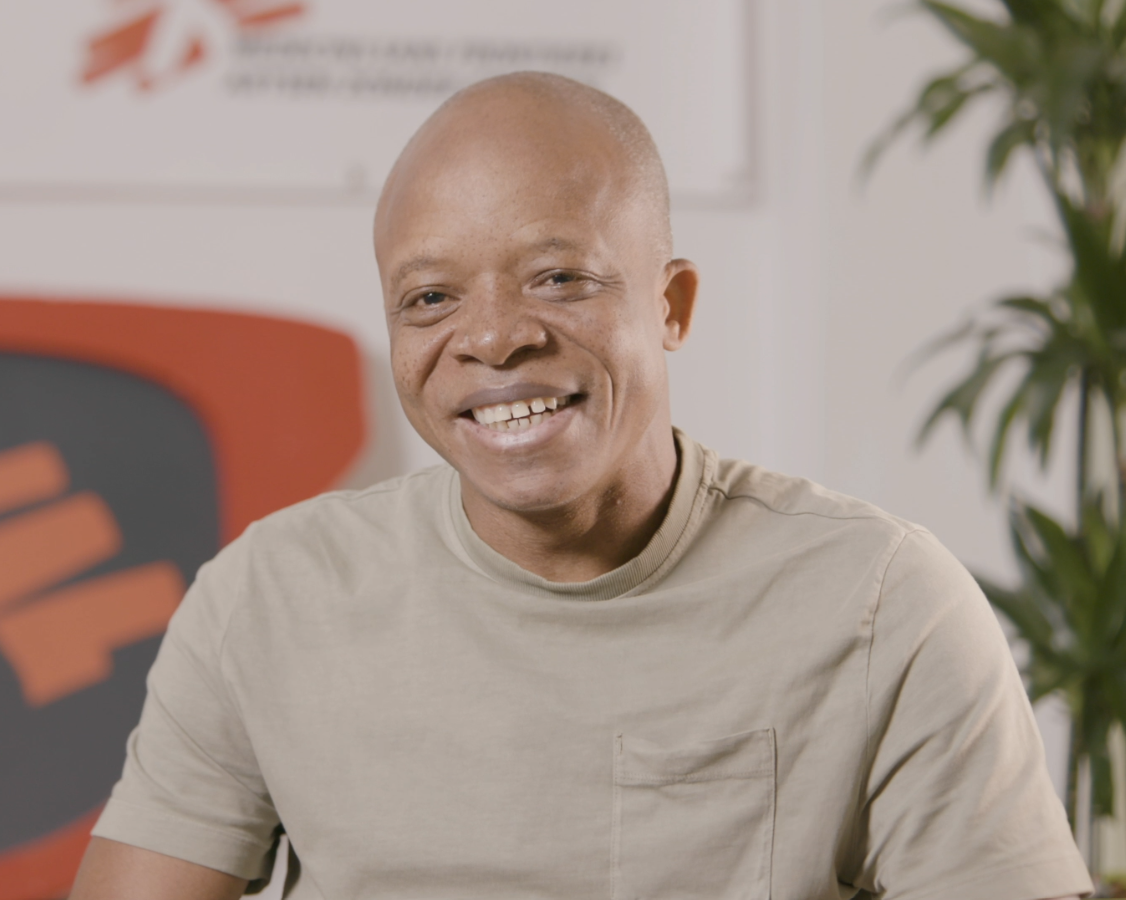Postgraduate Diploma in Medical Humanitarian Leadership
To strengthen the key competencies of Medical Coordinators, reinforcing the quality of the medical strategies and leadership in MSF projects
The Postgraduate Diploma in Medical Humanitarian Leadership is a 24-month practice-based diploma course that is tailor-made to strengthen the key competencies of MSF’s future or junior medical coordinators (MedCos).
Medical coordinators are the backbone of MSF projects and the guarantors of quality medical-humanitarian analysis and project design. The position requires unique medical management skills and experience that can be hard to obtain. This programme targets the key competencies identified for the role, with the aim to have an impact on the quality of the medical strategies of MSF projects and the leadership to run the medical activities.
The programme is delivered through a hybrid learning format, with online self-paced learning content, live sessions, webinars and two in-person sessions of one to two weeks. A team of MSF professional tutors provide close individual support for the learners, to assure optimal work-based learning. The programme is held in English.
The MSF Academy established a partnership with Wits University, in South Africa, to accredit the program as a Postgraduate Diploma in Public Health from 2024. Epicentre is also a partner of this course.
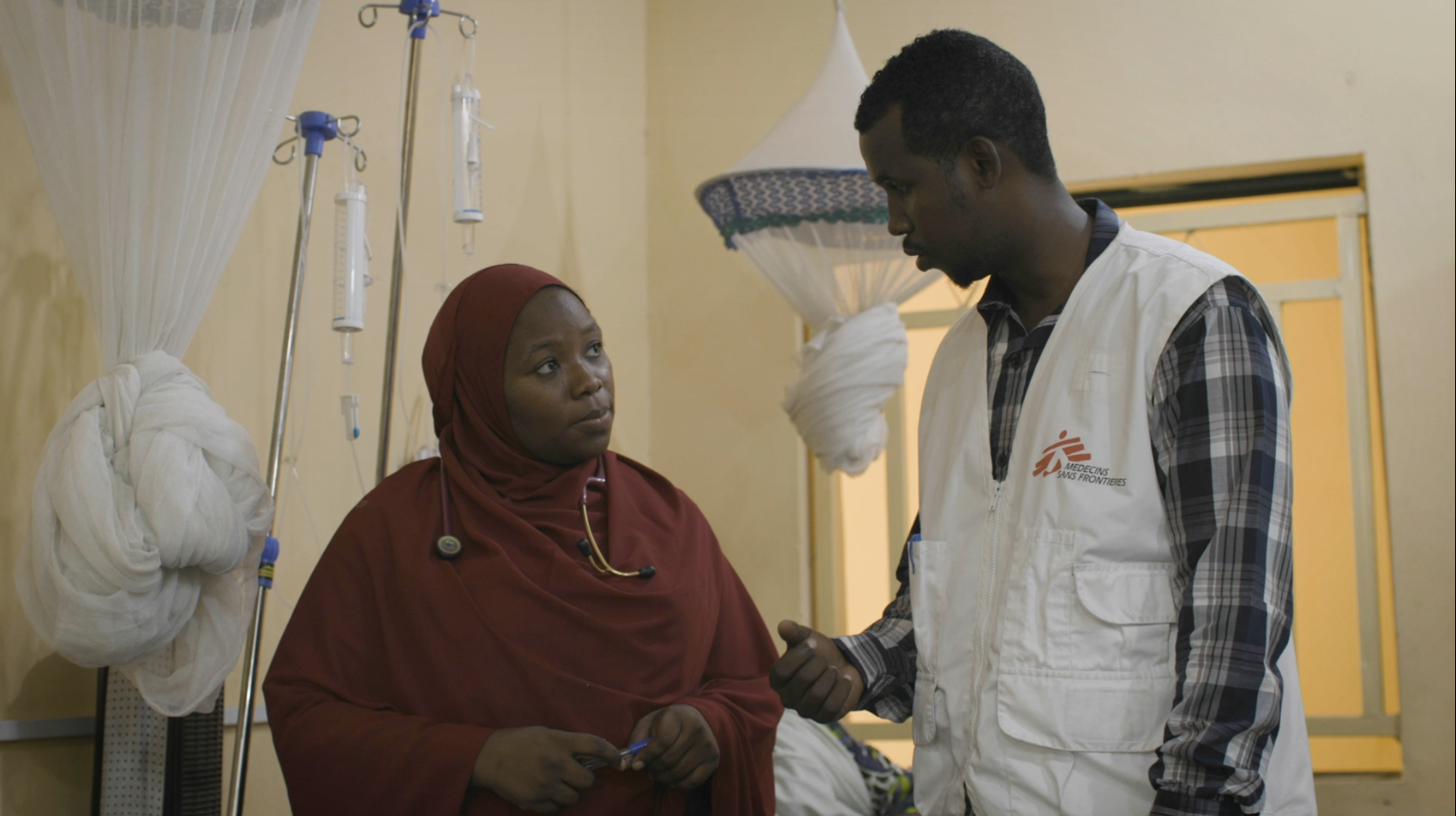
The Postgraduate Diploma in numbers
active learners
following the programme
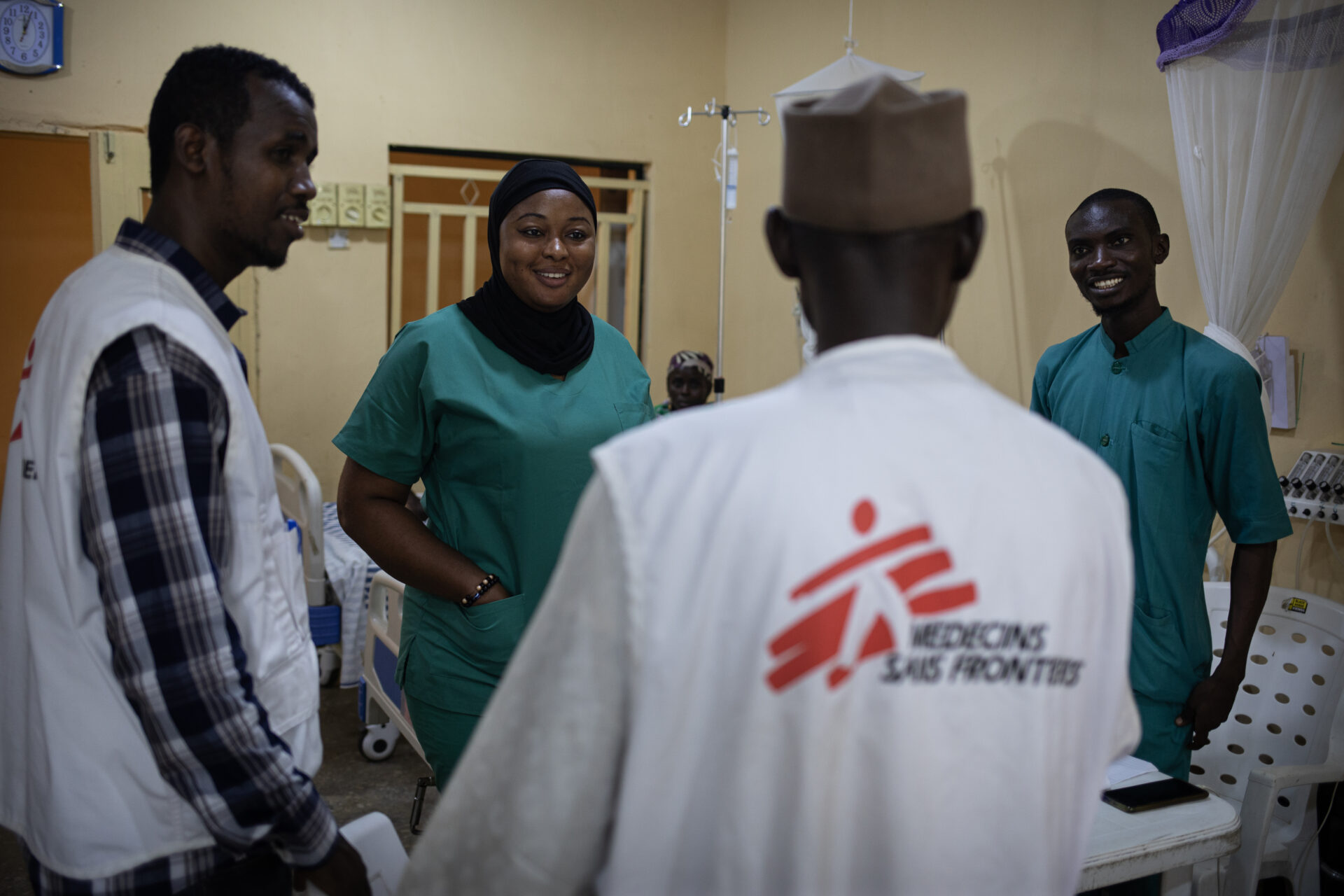
The programme
The curriculum is based on the competencies needed in MSF projects, with a focus on medical strategies, medical leadership, quality analysis and support of MSF medical activities. The two-year course adopts a hybrid learning methodology allowing medical managers to participate while they are working in the field. It combines online classes, in-person sessions and on-the-job learning.
The programme involves on-the-job learning within MSF projects and missions. All operational activities of the participant (assessments, situation analysis, team management, strategy development, monitoring and evaluation, etc.) are supported and transformed into more structured learning activities. It is an innovative competency-based learning methodology.
The curriculum is structured around the nine core competencies identified as essential for the Medical Coordinator role
- Epidemiology and statistics
- Design of operational strategies
- Operational management of medical interventions
- Leading and managing the medical team
- Coordination of emergency preparedness and response
- Coordination of pharmacy management
- Organisation’s positioning (networking, representation, communication, advocacy)
- Facilitation of operational research
- Definition of a staff health policy and coordination of its implementation
The training strategy relies strongly on professional tutors who are MSF staff with extensive medical coordination experience. Each tutor follows about 10 participants. Their role is to support the learning of the participant along all the competencies, following a specific individual learning agreement and portfolio.
The learners participate in a in-person session every year, which allows them to exchange experiences and lessons learned, meet their peers and discuss relevant issues with experts.
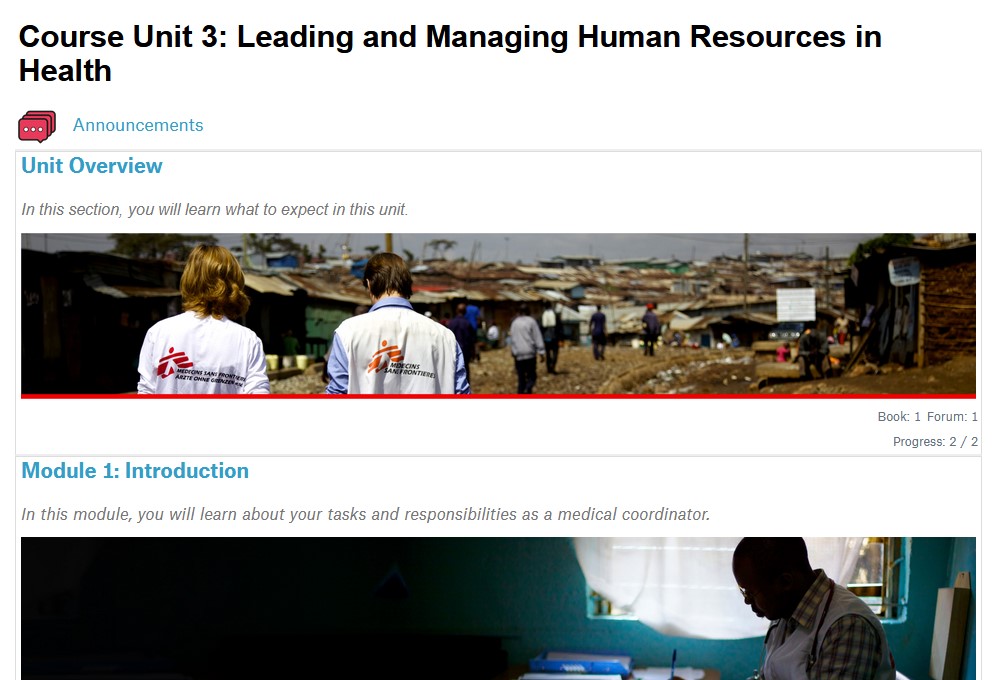
The learning content has been developed in close collaboration with various subject-matter experts within the MSF movement, and with Epicentre specifically for the content on biostatistics and epidemiology. It includes short documents, commented scientific articles or book chapters, recorded lectures, tips and tools, videos, etc.
The participants are invited to apply and practice these new learnings with individual or group exercises, quizzes, roleplays, forums, live-sessions and as much as possible, directly in their work. The participants’ work realities and operational activities are used as learning opportunities, and the provided online resources are used to back this up, allowing to learn in real time while gaining competencies and confidence in the daily tasks.
How to apply
The applications to participate in the programme are open once a year and the selection of participants is done by committees made of MSF pool managers, development advisors and learning and development managers of each MSF operational center.
Selection criteria
The target participants are junior or prospective Medical Coordinators, as well as Project Medical Referents with at least 24-month experience in the role and a strong commitment to become Medical Coordinators.
A good level of English is as well needed, and the participants’ projects and missions should be supportive of the participation.
The backstory of the programme
In 2020, the MSF Academy decided to create the Fellowship in Medical Humanitarian Action, now Postgraduate Diploma in Medical Humanitarian Leadership, with the aim to offer a learning programme to strengthen the key competencies needed for the role of Medical Coordinator.
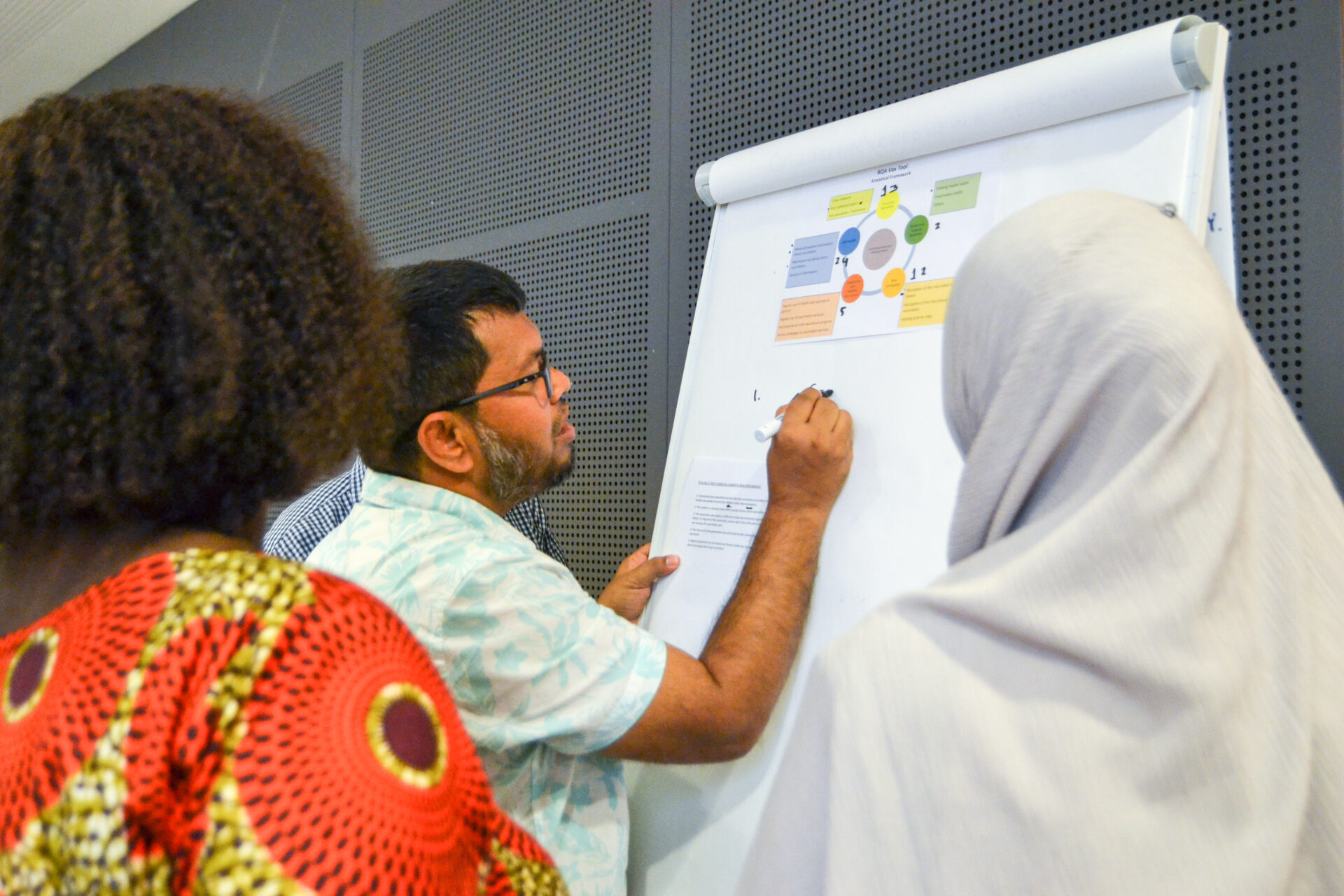 Participants during an in-person session in Brussels, Belgium, 2023.
©MSF
Participants during an in-person session in Brussels, Belgium, 2023.
©MSF
The 2021 pilot phase started with 14 participants, and the first in-person session for them took place in March 2022, as it had to be postponed due to the travel restrictions linked to the Covid-19 pandemic. After that first group, the second cohort started in 2022 and the third one in 2023.
The conversations with Wits University to have the programme recognised and accredited as a Postgraduate diploma started by the end of 2022. In 2023, the partnership was settled. In the beginning of 2024, when the fourth cohort started, the Fellowship became the Postgraduate Diploma in Medical Humanitarian Leadership.

